
ILRI celebrates 50 years and unveils new strategy for sustainable livestock development
The year 2024 marks the 50th anniversary of the International Livestock Research Institute (ILRI), a center within CGIAR. Since 1999, ILRI has been an important partner in Vietnam’s livestock sector, conducting research projects in the field of food safety, animal health, climate change, and sustainable livestock production. These initiatives have strengthened scientific capacity and made significant contributions to the growth of Vietnam’s livestock industry, amidst increasing global integration, rising market demands, and stricter technical and quality barriers for livestock product exports and imports.
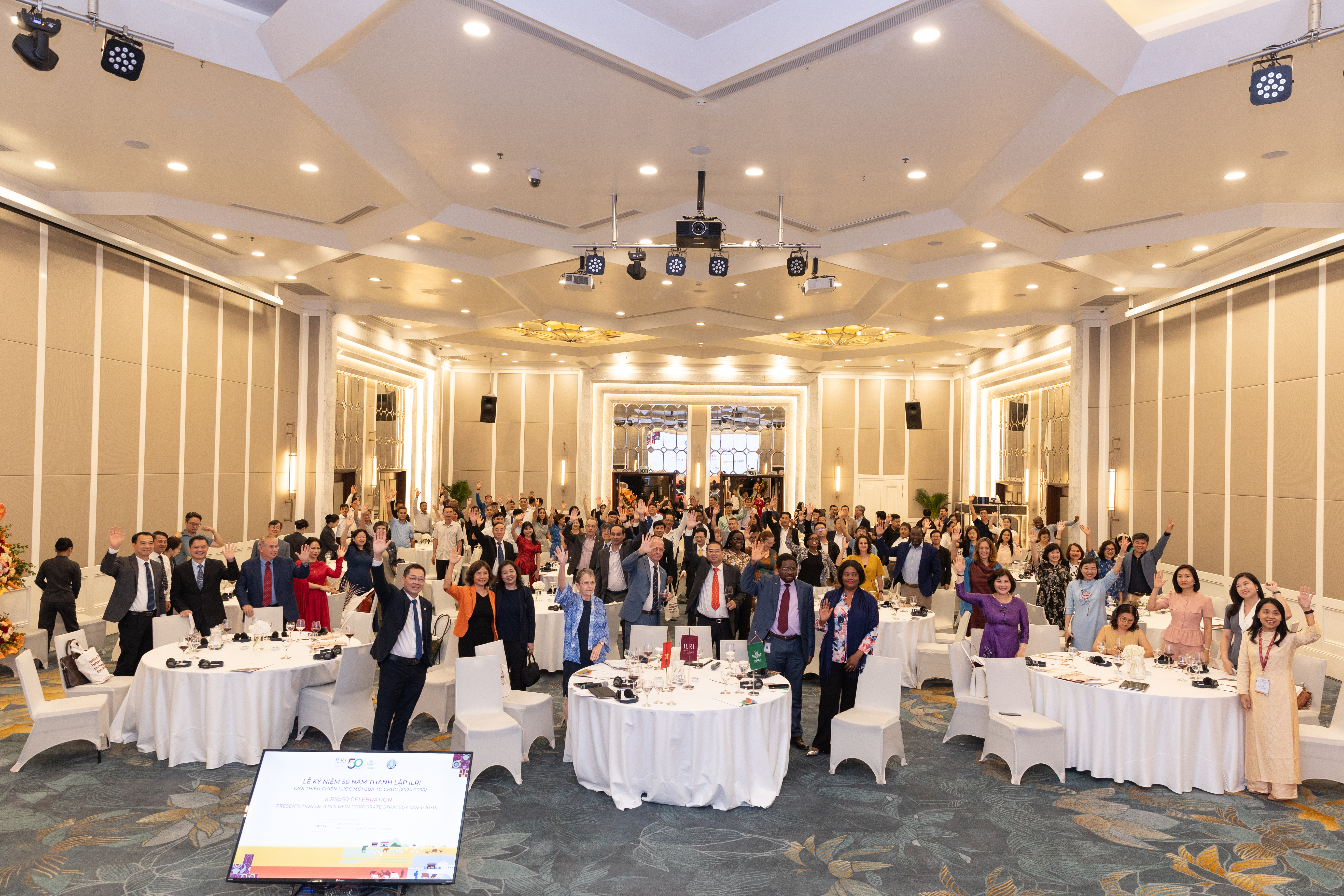
In 2006, ILRI officially established its office in Vietnam, focusing on key areas such as food safety, animal health, One Health, and enhancing livestock productivity. This anniversary provides a moment to reflect on ILRI’s accomplishments, lessons learned, and the future potential for collaboration with Vietnam on sustainable livestock development. An important part of this reflection is the introduction of ILRI’s new strategy, ‘Unlocking sustainable livestock's potential through research for better lives and a better planet’, which will guide its efforts from 2024 to 2030.
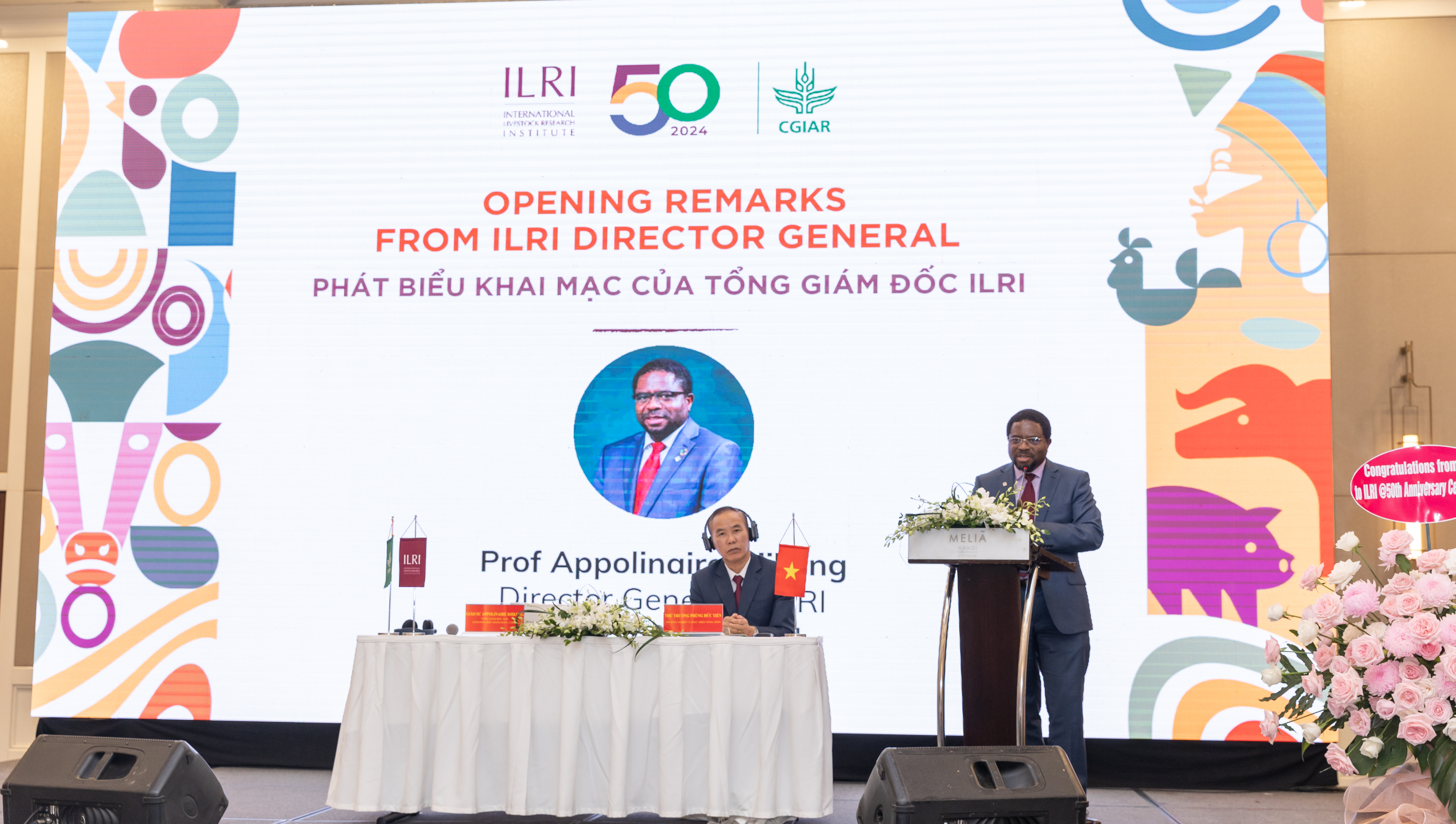
The strategy addresses global challenges such as climate change, food insecurity, and sustainable development. It aims to improve livestock systems in both Africa and Asia, with a goal of enhancing the livelihoods of 300 million people in low- and middle-income countries. Central to the strategy is the implementation of large-scale, science-based sustainable livestock solutions that influence policy decisions and investments, creating significant impacts within the livestock sectors of target countries like Vietnam.
In his speech at the celebration, Appolinaire Djikeng, ILRI's director general, highlighted the importance of the new strategy, stating that it represents ILRI’s continued commitment to tackling global issues through innovation. The strategy provides scalable and adaptable solutions tailored to local contexts, with a focus on policy changes and targeted investments to improve livelihoods while safeguarding the environment. Vietnam, in particular, is highlighted as a focal point for ILRI’s work in Southeast Asia, playing a strategic role in improving livestock systems, particularly in food safety, climate change resilience, and disease management.
ILRI’s strategy builds on years of experience and success in Vietnam, where it has made notable contributions in four main areas:
- Food safety: ILRI projects have reduced foodborne disease risks through better control in pig value chains.
- Livestock genetics: ILRI has improved productivity and adaptability through research on indigenous breeds and supporting smallholder farmers.
- Animal health: Through the One Health approach, ILRI has enhanced the management of zoonotic diseases and promoted responsible antibiotic use.
- Climate resilience and sustainable livelihoods: ILRI has helped farmers reduce greenhouse gas emissions and adopt sustainable practices, particularly in vulnerable regions, aligning with Vietnam’s goals for food security, poverty reduction, and climate change adaptation.
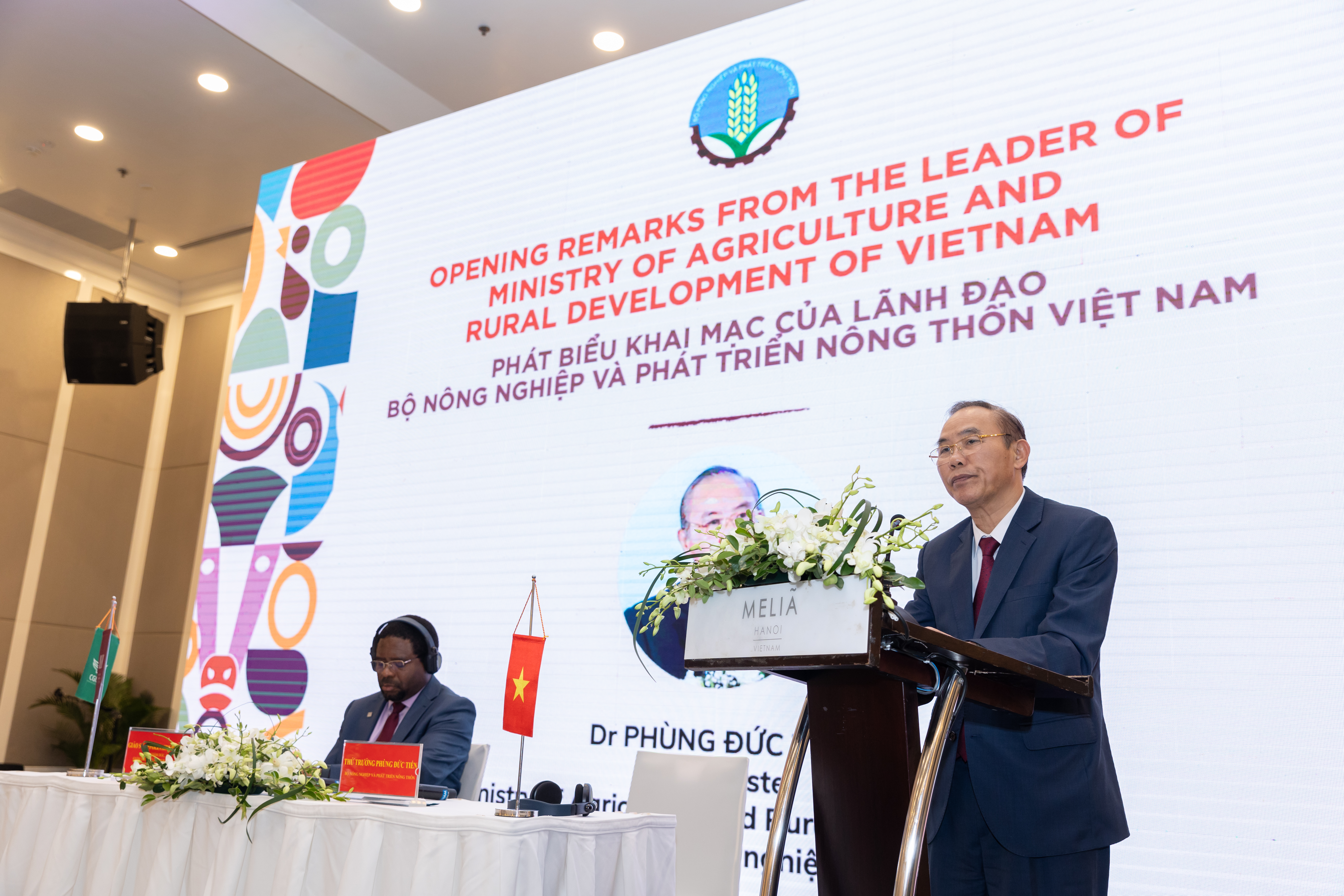
On behalf of Vietnam’s Ministry of Agriculture and Rural Development (MARD), ILRI’s primary partner in the country, Phung Duc Tien, MARD’s vice minister offered warm congratulations to ILRI’s leadership, staff, and scientists for their substantial contributions to global and Vietnamese development over the past 25 years. He reaffirmed MARD’s commitment to continuing and expanding cooperation with ILRI working toward practical results for healthier livestock, improved livelihoods, and a more sustainable environment. MARD is proud to serve as ILRI’s research and investment hub in the region and is confident that ILRI’s expertise in capacity building and applied research will make significant contributions to sustainable food systems, animal health, and climate change response.
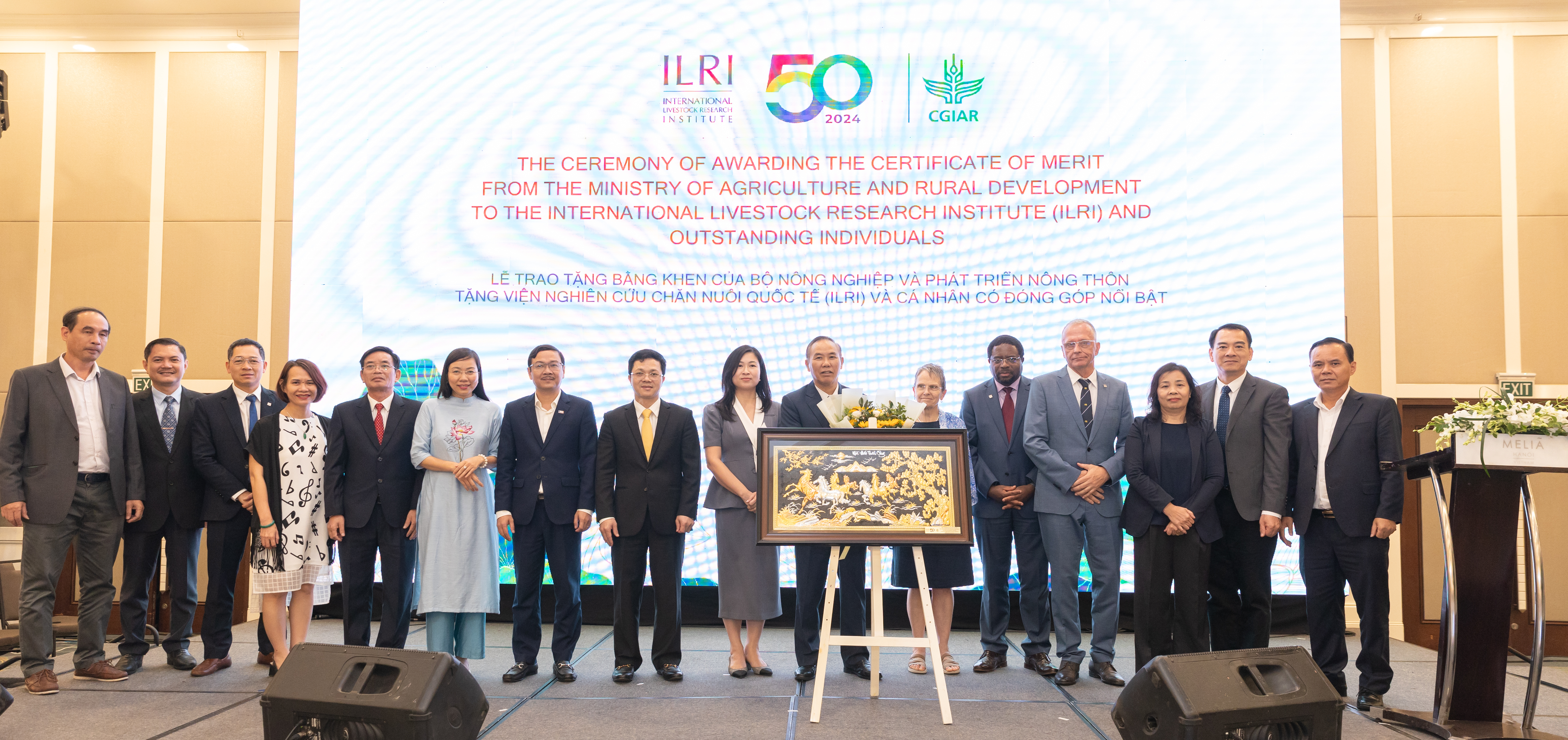
To honor the collaborative efforts of both parties, the vice minister awarded two certificates of merit to ILRI and Fred Unger, ILRI’s regional representative for Asia, in recognition of their significant contributions to rural agricultural development.
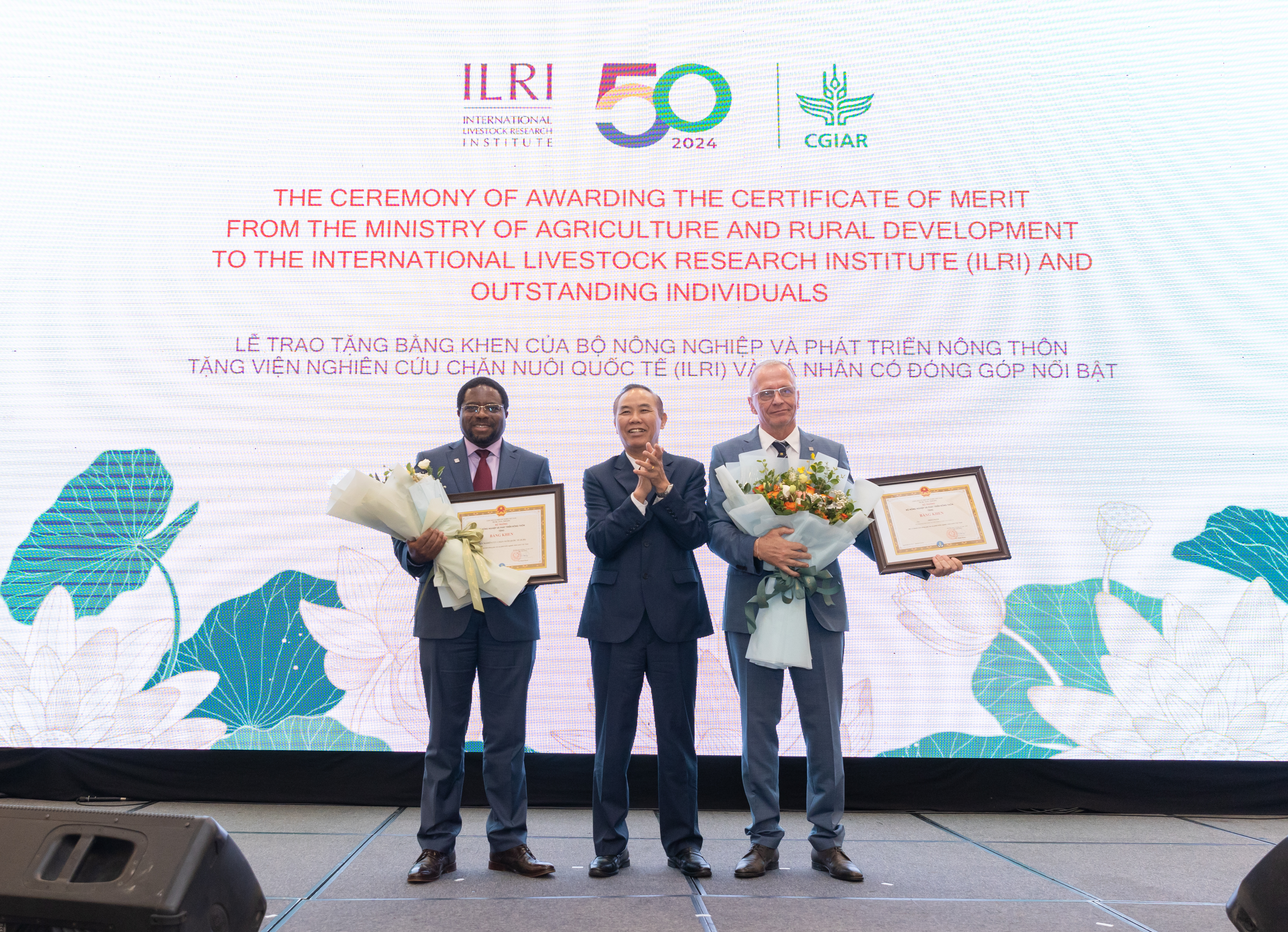
As a CGIAR center, part of the world’s largest agricultural research network, ILRI will continue to strengthen its collaboration with global development organizations, leverage 4.0 technologies, and mobilize resources through strategic partnerships, particularly with MARD and inter-ministerial government agencies. Together, they will implement the 2024–2030 Sustainable Livestock Development Strategy in Vietnam, aligned with the priorities of the national livestock sector and the broader Sustainable Development Goals of the United Nations.
- See more photos at ILRI50 in Vietnam
- Explore the ILRI50 photo exhibition: Better lives, better planet through livestock in Southeast Asia
Watch sand art video on ILRI@50 milestones and achievements in Southeast Asia
Watch video on advancing livestock systems: ILRI's innovations and impacts in Southeast Asia





